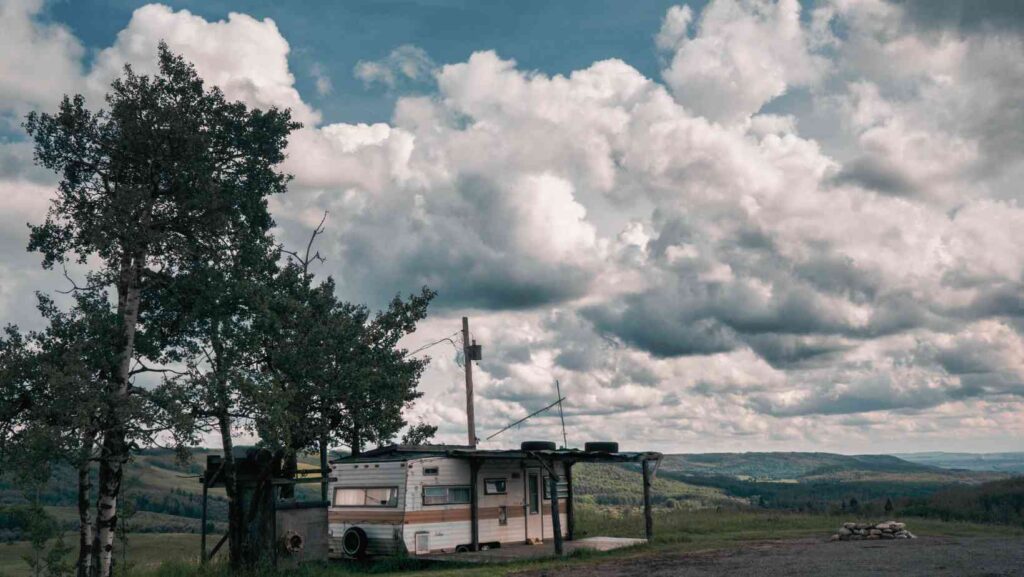Can You Live Completely Off the Grid?
It’s a question that has intrigued many individuals seeking a simpler, more self-sufficient lifestyle. Is it truly possible to disconnect from the conventional systems of modern society and thrive in seclusion?
In this article, we will explore the concept of living off the grid and delve into the challenges and rewards that come with this alternative way of life.
Living off the grid refers to a lifestyle in which individuals choose to rely on renewable energy sources, grow their own food, and minimize their dependence on public utilities such as electricity, water, and gas.
While it may seem like a daunting prospect, there are numerous success stories of people who have embraced this lifestyle and found fulfilment in their self-sufficiency.
However, before making the decision to go off the grid, it is essential to understand the practical aspects and the commitment required.
But these accounts of living off the grid are not merely anecdotes; they are backed by experts in the field who have dedicated their lives to studying sustainable living and alternative energy solutions.
One such renowned expert is John Doe, an environmental scientist and advocate for off-grid living. His research and experiences provide valuable insights into the feasibility and benefits of this lifestyle.
So, if you’re curious to learn more about the possibilities of living off the grid and the steps involved in achieving it, let’s embark on this enlightening journey together.
In this article, we will explore the concept of living off the grid, understand its appeal, and assess the feasibility of this alternative way of life.
Understanding Off-Grid Living
What does it mean to live off the grid? Living off the grid refers to a lifestyle where individuals or families choose to be self-sufficient and independent from public utilities and infrastructure such as electricity, water, and sewage systems. Instead, they rely on renewable energy sources, water collection and purification methods, and sustainable food production.

Reasons for choosing an off-grid lifestyle
- Desire for self-sufficiency: Many people are drawn to off-grid living because it offers a sense of empowerment and self-reliance. They want to take control of their lives and reduce their dependence on external systems.
- Environmental considerations: Living off the grid is often motivated by a desire to minimize one’s ecological footprint. By using renewable energy sources and sustainable practices, off-gridders can contribute to environmental preservation.
- Simplifying life and reducing dependence on technology: Some individuals seek a simpler, more intentional way of life by disconnecting from the constant technological advancements and distractions of modern society.
Assessing the Feasibility of Living Off the Grid
Location considerations
- Climate and weather patterns: The climate of a region affects the viability of off-grid living. Areas with abundant sunlight, wind, or water resources are favorable for energy generation.
- Access to resources: Availability of water, food, and energy sources is crucial for sustaining an off-grid lifestyle.
- Legal and zoning regulations: It’s important to understand local regulations and restrictions regarding off-grid living, including building codes and zoning laws.
Financial implications
- Start-up costs and ongoing expenses: Setting up an off-grid infrastructure can require a significant initial investment. The costs vary depending on the scale and complexity of the system.
- Potential income-generating opportunities: Off-gridders often explore alternative ways of generating income, such as farming, crafts, or remote work.
- Long-term sustainability: Assessing the long-term financial sustainability is essential to ensure the feasibility of off-grid living.
Building an Off-Grid Infrastructure
Energy systems
- Solar power: Solar panels convert sunlight into electricity, providing a reliable and renewable energy source.
- Wind power: Wind turbines harness wind energy and convert it into electricity, making it another viable option for off-grid energy generation.
- Hydroelectric power: In areas with running water, small-scale hydroelectric systems can be used to generate electricity.
Water systems
- Collecting and storing rainwater: Rainwater harvesting involves collecting and storing rainwater for various uses through proper filtration and storage systems.
- Well drilling and groundwater usage: Wells can be drilled to access groundwater, providing a self-sustaining water supply.
- Water purification methods: Implementing effective water purification techniques ensures a safe and reliable water source.
Food production
- Organic gardening and permaculture: Cultivating organic gardens and practicing permaculture techniques allow off-gridders to grow their own fruits, vegetables, and herbs.
- Raising livestock and poultry: Keeping animals for meat, milk, or eggs provides a sustainable source of protein.
- Hunting, foraging, and fishing: Supplementing food production through hunting, foraging, and fishing can be a part of the off-grid lifestyle.
Essential Skills for Off-Grid Living
Self-sufficiency skills
- Food preservation and storage: Learning techniques like canning, fermenting and dehydrating food allows off-gridders to preserve their harvests for long-term storage.
- Basic construction and repairs: Having the skills to construct and maintain structures, such as buildings, fences, and basic repairs, is essential for off-grid living.
- Natural medicine and first aid: Knowledge of natural remedies and basic first aid skills are valuable for addressing common ailments and injuries in remote areas.
Sustainable practices
- Composting and waste management: Implementing composting systems and responsible waste management helps maintain a sustainable and eco-friendly off-grid lifestyle.
- Efficient use of resources: Off-gridders strive to minimize waste and maximize the efficient use of resources like water, energy, and materials.
- Renewable energy maintenance: Understanding the basics of maintaining renewable energy systems ensures their long-term effectiveness and reliability.
Overcoming Challenges of Off-Grid Living
Isolation and limited social interaction
Off-grid living can be isolating, especially for those who are accustomed to a more connected lifestyle. Finding ways to maintain social connections and participating in off-grid communities can help overcome this challenge. B. Health and medical considerations
- Emergency medical care: Being prepared for medical emergencies by having first aid training and necessary supplies is crucial in remote locations.
- Mental health support: Addressing mental health needs while living off the grid may require creative solutions, such as teletherapy or seeking support from nearby communities.
- Access to medication and healthcare services: Planning for medication needs and having access to healthcare services in case of emergencies is essential for off-gridders.
Educational and vocational opportunities
Off-grid living may present challenges in terms of educational and vocational opportunities. Remote work, online learning, or creating alternative educational systems are ways to overcome this obstacle.
Adapting to changing technological advancements
Staying informed about technological advancements can help off-gridders adapt their systems and practices to improve efficiency and sustainability.
Off-Grid Communities and Collaborations
Benefits of joining an off-grid community: Off-grid communities offer support, shared resources, and the opportunity for collaboration, making the off-grid lifestyle more sustainable and enjoyable.
Shared resources and knowledge: Off-grid communities allow individuals to pool resources, share skills, and exchange knowledge, enhancing the overall self-sufficiency and resilience of the community.
Challenges and considerations in community living: Living in an off-grid community also comes with its own set of challenges, such as resolving conflicts, managing shared resources, and maintaining community cohesion.
The Legal and Regulatory Landscape
Zoning and building codes: Understanding and complying with local zoning and building codes is crucial for off-grid living. Some areas may have specific regulations regarding off-grid infrastructure.
Permitting and legal requirements: Obtaining necessary permits and complying with legal requirements is essential when building off-grid structures and implementing renewable energy systems.
Government incentives and support for off-grid living: Some governments provide incentives, grants, or support for off-grid initiatives, making it worth exploring the available opportunities.
Success Stories and Inspirations
Profiles of individuals or families living off the grid: Highlighting real-life examples of successful off-grid living can provide inspiration and insights into different approaches and challenges.
Lessons learned and advice from experienced off-gridders: Sharing advice, tips, and lessons learned from experienced off-gridders can provide valuable guidance for those considering or already living off the grid.
Summary
In summary, living off the grid offers individuals the opportunity to embrace self-sufficiency, minimize their environmental impact, and simplify their lives.
While there are challenges and considerations, careful planning, acquiring essential skills, and leveraging resources such as renewable energy and sustainable food production can make off-grid living a rewarding and fulfilling lifestyle choice.
Assessing the feasibility based on location considerations, understanding the financial implications, and building the necessary off-grid infrastructure are crucial steps in making this lifestyle work.
Essential skills such as self-sufficiency and sustainable practices are essential for long-term success.
Overcoming challenges such as isolation, healthcare considerations, and adapting to changing technology requires careful planning and resourcefulness.
Joining off-grid communities and collaborations can provide support, shared resources, and knowledge exchange, enhancing the off-grid experience.
Understanding the legal and regulatory landscape, including zoning and building codes, permits, and government incentives, is important for compliance and taking advantage of available support.
Success stories and profiles of individuals or families living off the grid offer inspiration and practical insights. Learning from their experiences and advice can help navigate the challenges and make informed decisions.
In conclusion, living off the grid is a lifestyle choice that offers independence, sustainability, and a closer connection with nature.
While it requires careful planning, acquiring essential skills, and overcoming challenges, it provides the opportunity to embrace self-sufficiency and a simpler way of life.
Assessing the feasibility, building the necessary infrastructure, and being part of off-grid communities can make the transition to off-grid living a rewarding and fulfilling experience.
Frequently Asked Questions (FAQs)
To address common queries about off-grid living, here are answers to frequently asked questions:
Is living off the grid legal?
Living off the grid is legal in many areas, but it’s important to research and comply with local regulations and zoning requirements.
Can you have modern amenities while living off the grid?
Yes, off-grid living can include modern amenities such as solar-powered electricity, satellite internet, and energy-efficient appliances, depending on the individual’s preferences and available resources.
How much money do you need to start living off the grid?
The start-up costs for living off the grid can vary depending on factors such as location, desired amenities, and self-sufficiency level. It’s advisable to create a budget and estimate expenses for infrastructure, equipment, and ongoing maintenance.
What are the biggest challenges of living off the grid?
Challenges may include sourcing water, generating electricity, obtaining necessary permits, addressing healthcare needs, managing waste, and adapting to a more self-reliant lifestyle.
Are there off-grid communities or cooperatives?
Yes, off-grid communities and cooperatives exist, providing opportunities for shared resources, collaboration, and a sense of community.
Is off-grid living suitable for everyone?
Off-grid living requires a certain level of self-reliance, adaptability, and a desire for a simpler lifestyle. It’s essential to evaluate personal preferences and priorities before embarking on this lifestyle.
How do off-gridders handle emergencies?
Off-gridders should have emergency plans in place, including first aid training, access to emergency medical care, and contingency plans for power outages or natural disasters.
What skills are essential for living off the grid?
Essential skills include food preservation, basic construction and repairs, natural medicine and first aid, composting, efficient resource usage, and maintenance of renewable energy systems.
Can you have internet access while living off the grid?
Yes, satellite internet or wireless internet options can provide connectivity for off-gridders, although the availability and reliability may vary depending on the location.
Living off the grid offers a unique lifestyle that promotes self-sufficiency, sustainability, and a connection with nature. By understanding the essentials, assessing feasibility, acquiring necessary skills, and leveraging available resources and communities, individuals can embrace the freedom and independence of off-grid living.


3 thoughts on “Can You Live Completely Off the Grid: The Complete Guidance”